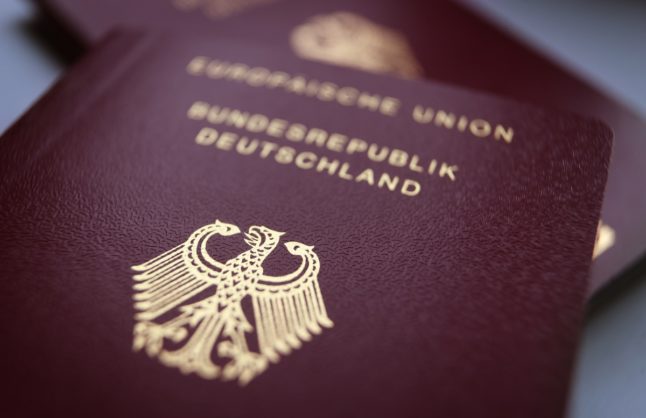In the long road towards dual nationality in Germany, there’s been no shortage of delays so far.
After lengthy negotiations between the three parties of the governing traffic-light coalition and a bumpy trajectory through parliament, Germany’s dual citizenship law was finally passed by the Bundestag on January 19th and was rubber-stamped by the Bundesrat on February 2nd, paving the way for the bill to be signed into law.
As The Local reported earlier this year, the final stage for the bill involves being countersigned by Interior Minister Nancy Faeser and Chancellor Olaf Scholz before being sent to the Federal President, Frank Walter-Steinmeier, for a final signature.
READ ALSO: What are the next steps for Germany’s new dual citizenship law?
According to sources at the President’s office, this normally takes around two weeks. Six weeks after the vote in the Bundesrat, however, foreigners in Germany are still waiting for an update – and the wait continues.
What’s behind the latest delay?
Luckily, it doesn’t sound like there are any significant issues holding up the bill, and it’s still expected to be signed off in the coming weeks.
While the President’s office has been reluctant to set an exact date for the final stage of the process, a spokesperson for the Interior Ministry confirmed that the citizenship reform was still on track to enter into force in the second quarter of the year, meaning dual nationality could become a reality by July 2024 at the latest.
This was backed up by the head of Berlin’s immigration authority, Engelhard Mazanke, at a recent meeting with foreigners who are waiting for their citizenship applications to be processed.
Mazanke expects the new law to be implemented by July 1st, and revealed that the government was also planning a major publicity drive to encourage foreigners to apply for citizenship around the same time.
READ ALSO: Foreigners in Berlin furious over German citizenship delays
What do I need to know about the citizenship reform?
Alongside the landmark change to Germany’s dual citizenship rules, which will pave the way for all foreigners – regardless of their nationality – to keep their existing passports when becoming German, there are several other changes on the horizon.
Most significantly, people will be able to naturalise after just five years of residence in the country, rather than the current eight – or as little as three if they can prove exceptional integration and C1 language skills.
Children born to foreign parents who have lived in Germany for at least five years will also be automatically eligible for citizenship.
In recognition of their contribution to German society, people from the guest worker generation who arrived in Germany in the 1950s and ’60s will also be exempt from taking a formal B1 language test and won’t have to take a citizenship test in order to prove successful integration.
Alongside these relaxations of the rules, at least one aspect of naturalisation is set to become harder: applicants will have had to have been in full-time employment – or otherwise able to provide for themselves and their family without resorting to unemployment benefits – for at least 20 out of the last 24 months when applying for citizenship.
KEY POINTS: What you need to know about Germany’s citizenship law reform



 Please whitelist us to continue reading.
Please whitelist us to continue reading.
Member comments